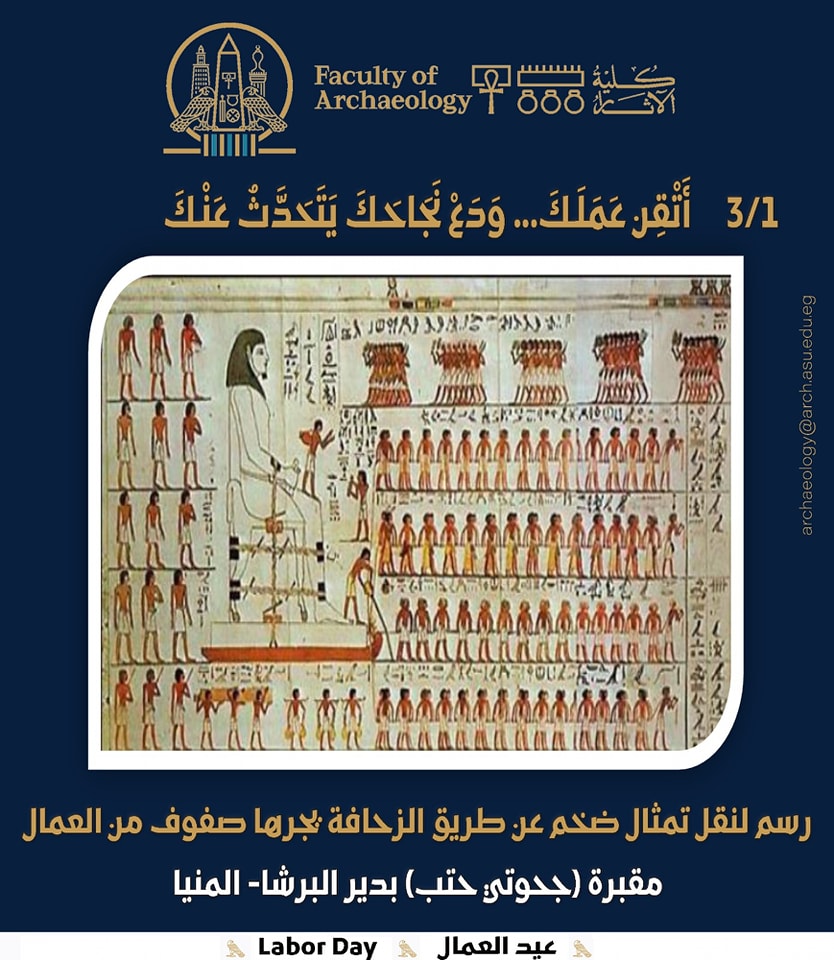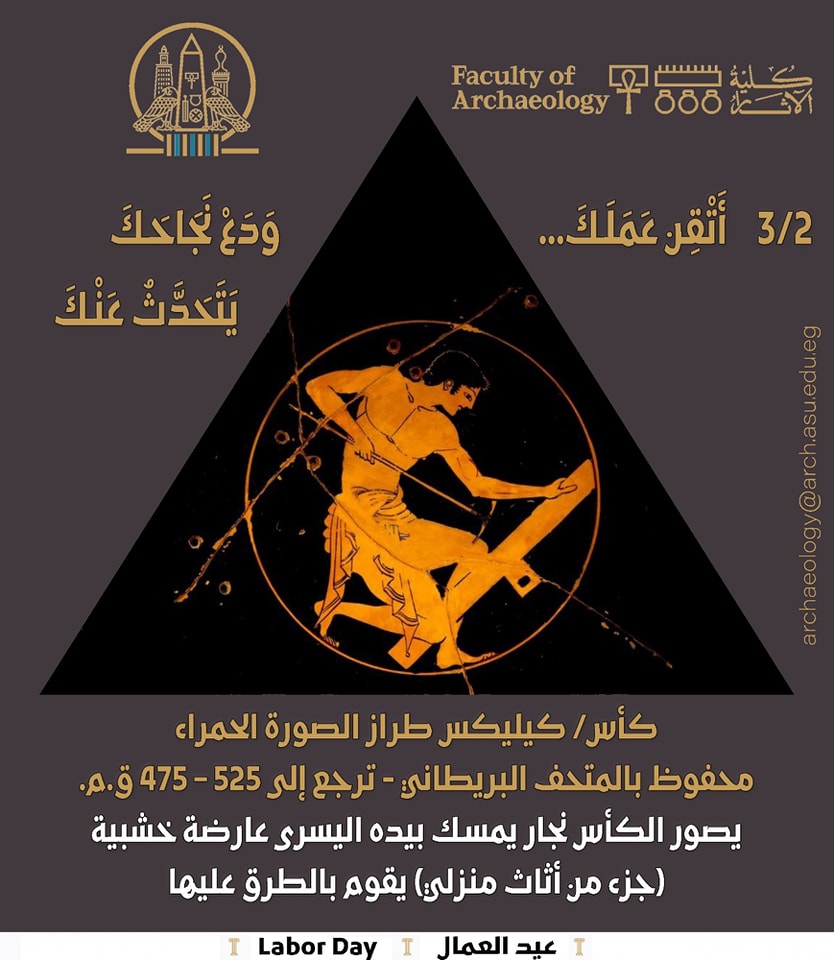labor day
2023-05-11The ancient Egyptian believed that human labor is the source of production and prosperity. The inhabitants of Deir El-Medina were among the most skilled craftsmen and workers in Egypt. Stone cutters, carpenters, furniture makers, masons, and others resided there. Craft activities were widespread and characterized by order and proficiency. It is passed on from grandparents to parents and children.
Ancient Egyptian literature referred to the importance of work through the commandments of the minister (Ptahhotep), and the need for mastery of work and justice among employees, including:
"Be diligent at all times... Do more than what is required of you... Do not waste your time if you can work."
Greek pottery also monitored many professions and crafts that workers and artisans worked with and were related to the Greek economy, on top of which were pottery makers, carpenters, wine and olive oil workers, bakers, ship craftsmen, metal and stone cutters, and other professions and crafts that flourished during the golden age of civilization Greek.
As for Islamic civilization: work is worship, and work is an honorable task, and an inevitable necessity for the continuation of life and the extension of urbanization, and the pursuit of the interests of the family and the soul. As Allah said in his book: "Allah will see your works and so will His Messenger and the believers; then you shall be returned to the Knower of the unseen and the visible, and He will inform you of what you were doing.} [At-Tawbah: 105].
 |
 |


.svg)
